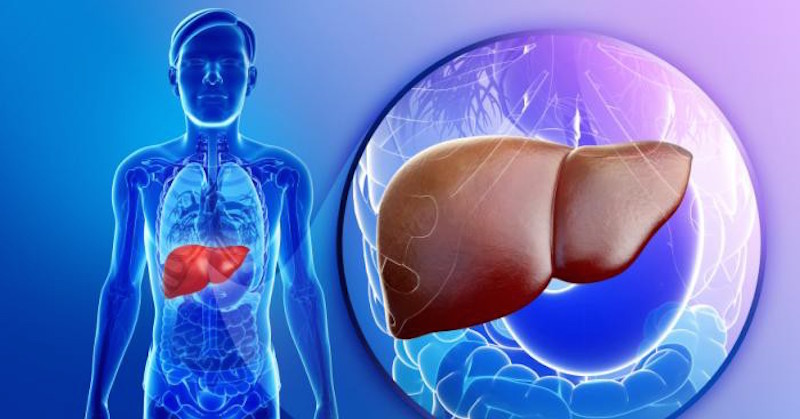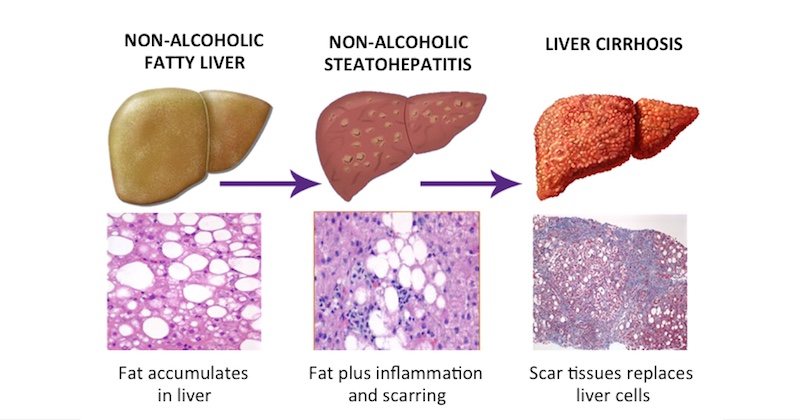High Liver Enzymes In Your Blood Test Results And What They Mean
Last updated on
Having high liver enzymes isn’t something uncommon, and it surely isn’t a signal to panic as soon as you find them in your lab results. It happens to many of us, and for dozens of reasons.
However, it is extremely important to learn what they can be pointing at and what should you be doing after discovering you have elevated liver enzymes.
The Basics: What Are Liver Enzymes?
The liver is one of the major “factories” in the human body.
For instance, it produces most of your proteins, synthesizes bile (which is crucial for proper digestion) and certain hormones. Additionally, the liver neutralizes a big share of all the toxins that enter your body or are formed in it.
Its main way of carrying out the listed functions is by producing enzymes—special substances that accelerate all the metabolic processes in living cells. Without them, the speed of these chemical reactions would not be high enough to sustain life.
High Liver Enzymes That Are Commonly Found In Lab Results
The main point to remember is that the liver enzymes work inside the liver cells (called hepatocytes), so you can’t find a great deal of them in your blood. But what happens when the liver is damaged?
Its cells are destroyed, and the enzymes that are normally inside the hepatocytes enter the blood. The trick then is to determine what is causing the damage, but can you really do that just by looking at your lab results?
Well, with the help of some basic physical examination, it turns out you can!
Get To Know Your Enzymes
As a rule, the high liver enzymes most commonly found in lab results are the ones listed below. Check out the reference range in the parentheses to have an idea of what the normal level of said substances looks like.
- ALT—Alanine transaminase (≤ 34 IU/L for women, ≤ 52 IU/L for men)
- AST—Aspartate transaminase (≤ 34 IU/L for women, ≤ 40 IU/L for men)
- ALP—Alkaline phosphatase (20–140 IU/L for both men and women)
- GGT—Gamma-glutamyl transpeptidase (5-55 IU/L for women, 15-85 IU/L for men)
ATTENTION! The reference range for each of these enzymes may vary from one laboratory to another. The numbers listed above are approximate, so be sure to get acquainted with the values your specific lab uses.
The good news is that you can get yourself a general idea of what can be causing the boost in your liver enzymes without knowing much of their functions, just by following the simple step-by-step algorithm described below. And right after that, the next move is to pacify the enzymes in a safe and natural way. 🙂
ATTENTION! The information below is presented for educational purposes ONLY and is NOT INTENDED to serve as a surrogate for the consultation of a professional healthcare practitioner. You must NEVER practice self-diagnosis and self-treatment if you don’t have an end-to-end medical education.
Step 1: Pinpointing The Organ
None of the enzymes listed above (ALT, AST, ALP, GGT) are exactly “exclusive” to the liver. They are called liver enzymes for simplicity, but there are many situations in which, let’s say AST is elevated, but the liver is healthy as can be.
However, among these four substances, the concentration of ALT is highest in the liver, so this serves as a good indicator of the process’ localization. A fun mnemonic formula to remember this is to consider ALT—A Liver Thing.
Then, if ALT is elevated, an easy way to confirm the process is really happening in the liver, is to count the AST to ALT ratio (also known as the De Ritis ratio) named after the doctor who researched transaminases back in the 1950s—Fernando De Ritis. To do so, just divide your AST count by your ALT count:
- Normal range 0.91-1.75
- Higher than 2 – most likely, a muscular organ is being damaged (e.g. the heart or skeletal muscles; watch out for myocardial infarction, dermatomyositis, traumas, etc.) OR this is a case of alcoholic liver disease IF GGT is also elevated.
- Lower than 0.9 – most likely, the pathologic process is affecting the liver.
If alkaline phosphatase (ALP) is elevated, there are two main points to check for damage: it’s either the bile ducts or the bones. You see, ALP exists in two forms, and it is impossible to tell which one of them is elevated without doing an isomer analysis. A good hint would be to notice the following symptoms as well.
- If ALP is elevated due to a damage to the bile ducts (cholestasis, gallstones in the gallbladder, bile ducts, or pancreas), other liver enzymes will be elevated too, especially GGT and ALT. Physical symptoms may include yellowish skin, pain in the right upper quadrant of the abdomen, trouble eating friend and fatty food, spontaneous sensation of bitter taste in the mouth.
- If ALP is elevated due to a bone problem, other “liver” enzymes can be in their normal range. Other symptoms, in this case, include pain during movement or applied pressure, proneness to bone fractures, limited movement of the limbs.
If gamma-glutamyl transpeptidase (GGT) is elevated, the pathologic process is most likely localized in the liver. If ALP and/or ALT are high as well, the problem is probably related to biliary problems, such as gallstones or inflammatory processes of the bile ducts or gallbladder. Isolated GGT elevation is often linked to alcohol intake (usually chronic) and resulting alcohol disease of the liver.
Step 2: Pinpointing The Disease
Okay, by now you should have a general idea of the direction you should be looking in after finding your liver enzymes are higher than the should be. However, the human body is not a set of dull numbers: physical examination is the key to success. Below you’ll find a list of the most common causes of elevated liver enzymes along with a brief set of signs and symptoms that accompany each of them.
THE SCARY STUFF
Condition: Stones In The Gallbladder
High liver enzymes: ALP, GGT; ALT and AST are less affected
Main symptoms and signs: Pain in the upper right quadrant of the abdomen, pain during jumping or other thrust-involving activities (running, sex, etc.), intolerance to high-fat foods (pain increases, nausea, and vomiting may appear). If the bile ducts get obstructed by the stones, the skin and mucous membranes may gradually acquire a yellowish tone.
Condition: Binge Or Chronic Alcohol Consumption
High liver enzymes: GGT, ALP; AST
Main symptoms and signs: A history of alcohol consumption; chronic diseases of the liver (hepatitis, cirrhosis) are a common sidekick to alcohol consumption. Other manifestations may include either an extremely enlarged OR shrunk liver (during terminal stages).
Condition: Hepatitis (Acute, Chronic)
High liver enzymes: mainly ALT and AST
Main symptoms and signs: The process is often latent, without any other manifestations besides the high liver enzymes. Other symptoms may include an enlarged liver, pain in the upper right abdominal quadrant, a history of recent operations, childbirth, blood transfusions, and intravenous injections.
THE LESS SCARY STUFF
Certain drugs may cause elevated liver enzymes. Technically, this is an example of toxic liver damage and would manifest mainly in ALT + AST elevation. If so, the drug intake must be terminated without delay, and the enzymes should calm down in a couple of weeks.
Most common drugs that cause high liver enzymes: Over-the-counter painkillers (acetaminophen, aspirin, ibuprofen), birth control pills, certain antibiotics.
The same goes for foods and herbs. Have you ever been struck with food poisoning? Elevated liver enzymes are pretty common in such cases, and the worse the poisoning is—the higher the level of your enzymes can be. Mushrooms and herbs bought from uncertified sources are extremely dangerous in such cases, often resulting in lethal outcomes.
Never hesitate in contacting your doctor for a comprehensive consultation on the matter. In reality, there are hundreds of conditions that may be accompanied by high liver enzymes, and only an experienced professional will be able to provide you with the help your body deserves.
Step 3: Calming Down The Enzymes
- Focus on finding the cause of your liver enzymes’ elevation and start proper treatment immediately. If the cause is likely related to the intake of a certain drug, food or herb, immediately cease taking the agent, consult a physician and seek safe alternatives.
- Normalize your routine. Avoid unnecessary stress that could mess up with your hormonal balance, as this inevitably affects the liver function. Sleep enough, eat well, get plenty of vitamins, stay hydrated at all times.
- Try out some liver-boosting supplements. The most commonly recommended are milk thistle, dandelion root, and holy basil. However, it is crucial to consult a physician first and determine what is causing the high liver enzymes in your specific case. Some health conditions of the liver are a strong contraindication to almost all kinds of supplements in their acute phase (e.g. fulminant hepatitis), so stay alert.
Go here >> For a Complete Guide To Doing A Liver Cleanse
Takeaway Points
All in all, high liver enzymes in your blood test results, most likely mean that there is some kind of damage taking place in your liver. The process can be caused by a lot of things ranging anywhere from the glass of wine you’ve had the night before to a bad case of gallstones—there’s little specificity in lab numbers.
Although we have described a simple process through which you can get an idea of what can be happening in your body, coming to a professional for a personal consultation is a strong must. If not for treatment, then at least to confirm the diagnosis and receive proper recommendations.
Although elevated liver enzymes are not exactly a terrible and life-threatening thing per se, they could be pointing out to something that demands your attention.
We hope this article has answered your question. Stay healthy and be well!
Some of the links I post on this site are affiliate links. If you go through them to make a purchase, I will earn a small commission (at no additional cost to you). However, note that I’m recommending these products because of their quality and that I have good experience using them, not because of the commission to be made.
Comments
Leave a Reply



































 JOIN OVER
JOIN OVER
Thank you for a great article.
Thanks for this very informative article. I just got blood work results back from my yearly physical and was very worried to see my AST and ALT values elevated (AST by ~ 1 point, ALT by about 4). I haven’t had any symptoms my doctor asked me about. I’ve been stressed recently and my hormones have been out of whack, so I’m hoping that once that calms down my levels will be back to normal. This has never happened to me before.. I’m 43, slim, exercise regularly, eat healthy, drink alcohol rarely, so it’s very worrying to see this.